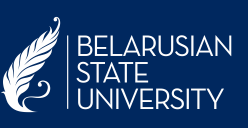
 |
Ïåäàãîãèêà èíôîðìàòèêè |
PEDAGOGY OF COMPUTER SCIENCE |
ISSN 2708-4124 |
|
MODERN APPROACHES AND INNOVATIVE PRACTICES IN TEACHING SCHOOL INFORMATICS L.L. Bosova FULL TEXT: PDF (Rus) Abstract Computer science as a subject has a strong position in system of Russian general education, occupies leading position in the world. As the same time general public (pupils, their parents, member of IT companies^ business and universities) are not satisfied with status and content of the school computer science course, expecting it to be much more in line with the realities of our time and challenges of the modern world. The purpose of research is to analyze modern approaches and innovative practices in teaching students computer science and determine on this basis a possible vector for the further development of subject. The article analyzes the changes in the goals, content, means, methods and forms of teaching computer science that are happening in our time. Further development of the Russian course in school informatics is associated with formation of a methodological system of continuing education in computer science in grades 1-11. Key words School informatics, general education course in informatics, methodological system of teaching informatics. Received: 02/03/2020; accepted for publication: 02/15/2020. For citation: ________________________________________ Bosova L.L. Modern approaches and innovative practices in teaching school informatics. Electronic scientific and methodological journal “Pedagogy of computer science”. 2020;1. Http://pcs.bsu.by/2020_1/1ru.pdf Content is available under license Creative Commons Attribution-NonCommercial-ShareAlike 4.0 International License. About the authors:
References 1. Frumin I.D., Dobryakova M.S., Barannikov K.A., Remorenko I.M. Universal’nye kompetentnosti i novaya gramotnost’: chemu uchit’ segodnya dlya uspekha zavtra. Predvaritel’nye vyvody mezhdunarodnogo doklada o tendentsiyakh transformatsii shkol’nogo obrazovaniya [Universal competences and new literacy: what to teach today for success tomorrow. Preliminary findings of the International report on trends in the transformation of school education]. Moscow: HSE, 2018. 28 p. (In Russian) 2. Kuznetsov A.A. K tridtsatiletnemu yubileyu shkol’noj informatiki [For the thirtieth anniversary of school informatics]. Informatika i obrazovanie, 2015;7:3–5. (In Russian) 3. Bosova L.L. Teoriya i metodika obucheniya informatike mladshikh shkol'nikov : uchebnoe posobie [Theory and methods of teaching computer science to younger students]. Moscow: MPSU, 2019. 180 p. (In Russian) 4. Lapchik M.P., Ragulina M.I., Semakin I.G., Henner E.K. Metodika obucheniya informatike [Methods of teaching informatics]. Saint-Petersburg: Lan, 2016. 392 p. (In Russian) 5. Osnovy obshchey teorii i metodiki obucheniya informatike: uchebnoye posobiye [Fundamentals of the general theory and methodology of teaching informatics: a tutorial]; pod red. A.A. Kuznetsova. Moscow: BINOM. Laboratoriya znanij, 2010. 207 p. (In Russian) 6. Pervin Yu.A. Metodika rannego obucheniya informatike [Methods of early teaching informatics]. Moscow: BINOM. Laboratoriya znanij, 2008. 288 p. (In Russian) 7. Primernaya osnovnaya obrazovatel’naya programma osnovnogo obshhego obrazovaniya [Sample basic educational program of basic general education]. [Electronic resource]. Avail-able at: http://fgosreestr.ru/registry/primernayaosnovnayaobrazovatelnaya-programma-osnovnogo-obshhegoobrazovaniya-3/ (In Russian) 8. Primernaya osnovnaya obrazovatel’naya programma srednego obshhego obrazovaniya [Sample basic educational program of secondary general education] [Electronic resource]. Available at: http://fgosreestr.ru/registry/primernaya-osnovnayaobrazovatelnaya-programma-srednego-obshhego-obrazovaniya/ (In Russian) 9. Bosova L.L. Sovremennye tendentsii razvitiya shkol'noi informatiki v Rossii i za rubezhom [Modern trends in the development of school informatics in Russia and abroad]. Informatika i obrazovanie. 2019;1:22–32. (In Russian). DOI: 10.32517/0234-0453-2019-34-1-22-32. 10. Abdrakhmanova G.I., Kovaleva G.G. Tsifrovye navyki naseleniya [Digital skills of the population]. Moscow: HSE, 2017. [Electronic resource]. Available at: https://issek.hse.ru/data/2017/07/05/1171062511/DE_1_05072017.pdf (date of access: 15.12.2019). (In Russian) 11. Obuchenie tsifrovym navykam: modeli tsifrovykh kompetentsii [Digital skills training: models of digital competencies]. [Electronic resource]. Available at: http://obzory.hr-media.ru/cifrovye_navyki_sotrudnika (date of access: 15.12.2019). (In Russian) 12. Uvarov A.Yu., Van S., Kan Ts. i dr. Problemy i perspektivy tsifrovoi transformatsii obrazovaniya v Rossii i Kitae [Problems and prospects of digital transformation of education in Russia and China]. Tsifrovaya transformatsiya obrazovaniya i iskusstvennyi intellect: proceedings of the II Rossiisko-kitaiskoy konferentsiy issledovatelei obrazovaniya. Moscow: HSE, 2019. 155 p. (In Russian) 13. Ershov A.P., Zvenigorodskii G.A., Pervin Yu.A. Shkol'naya informatika (kontseptsiya, sostoyanie, perspektivy) [School Informatics (concept, state, prospects)]. Preprint VTs SO AN SSSR, ¹ 152. Novosibirsk, 1979. [Elektronnyi resurs]. Available at: http://ershov.iis.nsk.su/ru/node/805749 (In Russian) 14. Kerzon P., Makouen P. Computational thinking: a New way to solve complex problems. Moscow: Al'pina Pablisher, 2018. 266 p. 15. Khenner E.K. Vychislitel'noe myshlenie [Computational thinking]. Obrazovanie i nauka. 2016;2:18–32. DOI: 10.17853/1994-5639-2016-2-18-33 (In Russian) 16. Bosova L.L. Vychislitel'noe myshlenie kak strategicheskaya tsel' obshchego obrazovaniya v oblasti informatiki i informatsionnykh tekhnologii [Computational thinking as a strategic goal of General education in the field of computer science and information technology]. Ak-tual'nye problemy metodiki obucheniya informatike i matematike v sovremennoi shkole: materialy mezhdunarodnoi nauchno-prakticheskoi internet-konferentsii; pod red. L.L. Bosovoi, D.I. Pavlo-va. Moscow: MPSU. 2019;10–17. (In Russian) 17. Bosova L.L. Parallel'nye algoritmy v nachal'noi i osnovnoi shkole [Parallel algorithms in primary and primary schools]. Informatika v shkole. 2015;2(105):24–27. (In Russian) 18. Samylkina N.N. Osnovnye podkhody k postroeniyu struktury i soderzhaniya shkol'nogo kursa informatiki uglublennogo urovnya [Basic approaches to building the structure and content of a school computer science course at an advanced level]. Nauka i shkola. 2019;6:171–182. (In Russian) 19. Novikov M.Yu. Printsipy postroeniya sistemy metodov obucheniya na osnove mobil'nykh tekhnologii [Principles of building a system of training methods based on mobile technologies]. Informatizatsiya obrazovaniya: teoriya i praktika: materialy mezhdunarodnoi nauchno-prakticheskoi konferentsii; pod red. M.P. Lapchika. Omsk: OmGPU, 2017:354–358. (In Russian) 20. Beshenkov S.A., Rakitina E.A., Matveeva N.V., Milokhina L.V. Nepreryvnyi kurs informatiki [Continuous computer science course]. Moscow: BINOM. Laboratoriya znanii, 2008. 143 p. (In Russian) 21. K-12 Computer Science Framework. [Electronic resource]. Available at: http://www. k12cs.org |